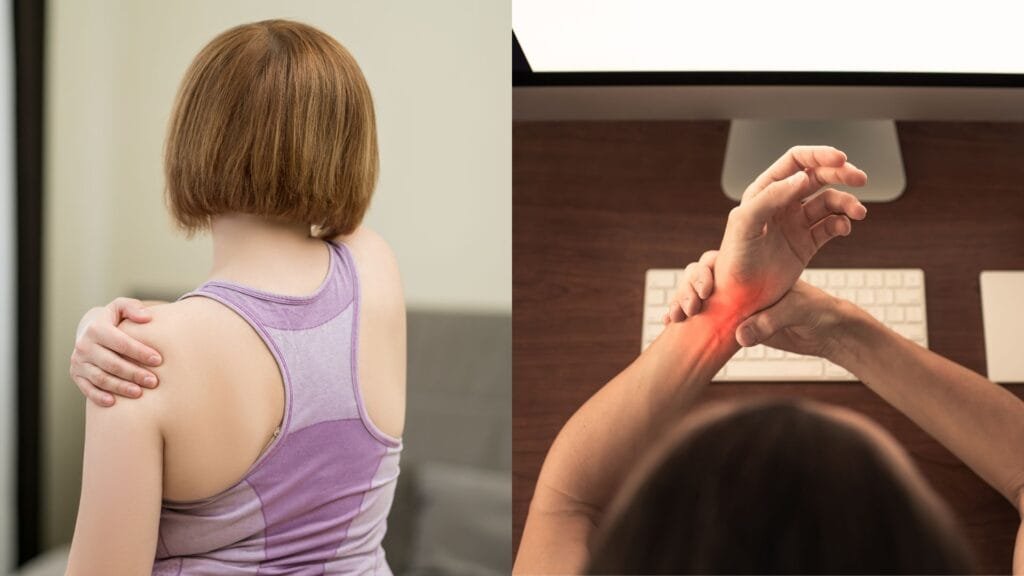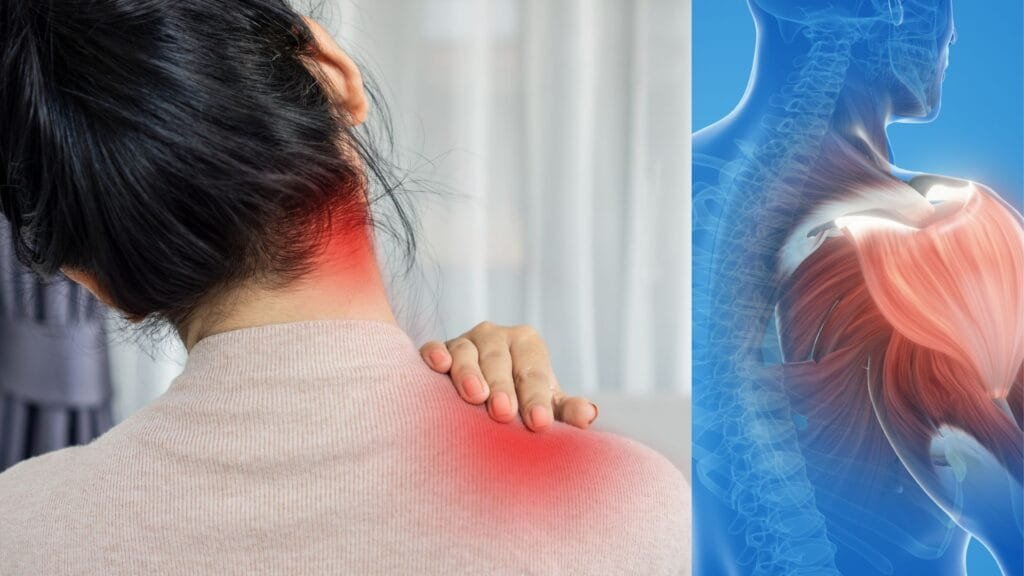This blog will inform you about Stiff Person Syndrome. First of all we will discuss what is Stiff Person Syndrome. Then it will discuss the Causes of Stiff Person Syndrome. It will also explain the Main Symptoms of Stiff Person Syndrome. We will also discuss the Types of SPS in detail. This will also elaborate the diagnosis and treatment of Stiff Person Syndrome. This blog contains Causes, Symptoms, Types and Treatment of SPS.
What is Syndrome?
Syndrome is a set of medical signs and symptoms correlated with each other and they are often associated with any particular disease.
Example: Down Syndrome, Acquired Immunodeficiency Syndrome, Stiff Person Syndrome etc.
Definition of Stiff Person Syndrome:
SPS or Stiff Person Syndrome is a rare neurologic condition in which muscles becomes rigid or stiffed. SPS is a complex disease and its cause can not be specifically identified.
This disorder effects a person’s life at a great extent as it effect their physical posture, mobility, sensory disturbance and much more. It can cause bad impacts on working of a person, by disturbing their movements.
It is an autoimmune neurologic disorder. Autoimmune neurologic disorders are those in which your immune system starts attacking your healthy cells that harms the body health so people mostly feel stiffness in their abdomen and their trunk in the condition of SPS.
With the stiffness in abdomen and trunk, the stiffness may develop in their legs and spasms with passing time. So for proper cure, early diagnosis and treatment is must. This blog contains information about SPS, Causes, Symptoms and Treatment.

Causes of Stiff Person Syndrome:
No exact causes of SPS are discovered yet. But some of the factors that can cause SPS are as follows:
• Autoimmunity:
The most important cause of SPS is the development of autoimmunity within the body. Which makes immunity weaker and any disorder is easily welcomed by body. It is when the body attacks its own immune system and cause disease. This is the cause of many diseases and infections in human body. In this our immune system is reversed and attacks its own host.
• Genetic Predisposition:
Its not obvious but, genetic variations and components can cause SPS in people. This may be in the form of disturbance in genetic recombination or genetic mutation. Problems and disposition of genetic material can be a cause of SPS. Genetic disturbances can cause many psychological and physical diseases and disorders so SPS is one of those diseases caused by genetic variations.
• Environmental Factors:
Environmental triggers such as life events, infections and stress may also result in SPS, because these impacts are directly or indirectly acting upon the people in daily life. Environmental factors play an important role in getting any disorder like this as a result of any traumatic event, stresses, disturbances and many other environmental factors that effects your body.
• Other Associated Disorders:
It can be caused by the presence of any other autoimmune disorder in the patients body so these disorder can trigger the condition of SPS.
All these factors may contribute in the causes of Stiff Person Syndrome but it is possible that no mentioned cause is the exact cause of SPS.
Symptoms of Stiff Person Syndrome:
Following are two common symptoms of SPS:
• Muscle Stiffness
In this muscles becomes rigid or stiff that cause pain in the muscles. This condition starts with abdomen and trunk but with the passage of time it spreads in other parts of the body i.e. legs or arms. Muscle stiffness is basically the tightness of muscles in your body parts. It can be after any exercise or hectic routine. But here we discuss muscle stiffness as a main symptom for stiff person syndrome.
• Muscle spasm
Spasm is involuntary muscle contraction at instant. It is another symptom of SPS. Spasm can be of patient’s entire body or any specific part of the body. This is mostly very painful. Other than muscle stiffness muscle spasm is also a symptom for stiff person syndrome. These are uncontrollable contractions in the muscles. It can effect part of any muscle or a group of muscles.
Specifically these two symptoms occur in the condition of Stiff Person Syndrome. These may occur in different parts of the body and may transfer to other parts of the body. These symptoms can make a person’s life way more difficult than any healthy person. This is because your mobility is disturbed, your productivity is lessened, you are always in pain and cannot participate actively in daily routine. Triggers like cold temperature, stress and sudden movements can cause worst symptoms of SPS. This blog will tell you causes, symptoms, types and Treatment.
Types of Stiff Person Syndrome:
Following are the types of Stiff Person Syndrome:
Classic Stiff Person Syndrome:
In this type, people feel muscle stiffness in primary muscles of lower back, legs and sometimes abdomen so the patients may walk with a gait and bear pain throughout the day. Classic SPS is associated with GAD (Glutamic Acid Decarboxylase) antibodies. It is an autoimmune neurological disorder. It is a rare disorder among all the types of Stiff Person Syndrome.
Partial SPS Variants:
These variants may have the same symptoms of classic SPS, but their antibody associations and clinical features may be different from classic SPS type. This type of SPS includes pain and stiffness in a specific region of the body. It can be on one leg, chest or abdomen so it cause violent muscle spasm. This type have common symptoms that are mostly taken for granted.
Other Types:
• Autoimmune SPS:
This type of SPS effect the CNS (Central Nervous System) cause progressive stiffness of muscles and spasm in the muscles.
• Paraneoplastic SPS:
Associated with underlying cancer (paraneoplastic syndrome).
• Idiopathic SPS:
In this condition there is no clear cause and associated condition.
Diagnosis of Stiff Person Syndrome:
Following are some ways to diagnose SPS:
Antibody blood test (Test to trace antibodies)
Electromyography (EMG)
Lumber Puncture (Spinal cord tap)
We can use these tests in the diagnosis of SPS.
Treatment of Stiff Person Syndrome:
Medications and therapies are used for treating stiff person syndrome.
Therapies for SPS:
Therapies helps to reduce and control the symptoms in a patient so These therapies include; Physical therapy, Massage, Heat therapy, Hydrotherapy Immunotherapy and Acupuncture.
Medication for SPS:
Medications like pain killers and other types are to control the symptoms and try to stop its transmission in other body parts. Following are types of medication for SPS:
Benzodiazepines: Drugs used for conditions like anxiety, seizures and insomnia.
Muscle Relaxants: Drugs used to treat muscle spasms.
Neuropathic Pain Medication: Drugs that effects GABA signals and treat SPS.
Can a person with SPS die?
Death in the case of Stiff Person Syndrome is rare. It does not cause by the disease itself. But in most of the cases the complications that arose from the disease may cause the death of the patient. These complications can be blood clots, infections, wounds etc. By these complications death may occur. In severe cases, extreme muscle stiffness can cause difficulty in breathing and cause the person to be out of breathe that may lead to the death because of choking. This is the extreme case of stiff person syndrome. So, a person can die due to SPS in very rare and extreme cases, otherwise it is a physical disease and do not disturbs the normal function of the body organs.
Conclusion:
Stiff person syndrome is a complex disorder in which stiffness of muscles of abdomen and trunk occurs into the patients. It is a very painful disorder as it effects a person’s movements and working so a person with SPS faces many difficulty in their working routine and daily routine. There is no exact cause of SPS in a person. We can treat SPS with the help of various therapies and medications. It can make a person’s life very difficult as compared to a healthy individual. There is no prevention identified for this disease. This blog contains Causes, Symptoms and Treatment of SPS.

To learn about more topics, Click the links below:
Comments